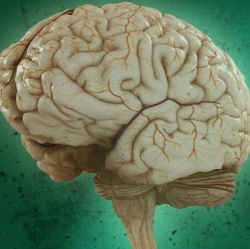
Frequently reported advances in artificial intelligence make some people curious, and others nervous. While some people picture their next smart appliance purchase being an AI robot, others wonder if an AI robot will take their job. The truth is, neither of those scenarios will be a reality anytime soon.
There’s a misunderstanding about artificial intelligence (AI), and it’s a big deal. True AI doesn’t exist yet, and it’s not a likely near future, either. Despite analysis of science fiction movies and scientific reports that claim otherwise.
People get excited when new breakthroughs in machine learning are publicized, like the CNBC interview with a robot named Sophia. Sophia’s ability to answer the interviewer’s questions and stay on point is jaw-dropping for many. The truth is, Sophia isn’t any closer to true AI than the last robot. She’s programmed to provide better responses, and her lifelike appearance makes her impressive, but even Sophia isn’t demonstrating true AI. She’s not autonomous, and can’t make her own decisions.
Advancements in AI toward true autonomy aren’t going to come from entertaining presentations like CNBC’s interview with Sophia the robot, but they might come from mimicking the human nervous system.
First, let’s dive into why robots like Sophia aren’t true artificial intelligence. Then, we’ll explore the potential wisdom the nervous system holds.
Artificial Intelligence is not what you think
When you think of AI, you probably think of the complex algorithms and deep machine learning that power robots like Sophia. That’s part of AI, but it’s not true AI without autonomy.
In terms of achieving true AI, known as Artificial General Intelligence, Kathleen Walch points out we’re not even close. The reality isn’t glamorous. “We have devices we can talk to that don’t understand what we’re saying,” she says. “We have cars that will happily drive straight into a wall if that’s what your GPS instructs it to do. Machines are detecting images but not understanding what they are… We have no idea how to achieve general intelligence.”
Sophia the robot returns the right answers, but she doesn’t understand what she’s being asked. She’s like the GPS that would direct you to drive off of a cliff if she was programmed to think there was a road ahead. She’s simply providing pre-programmed answers to questions that prompt her with keywords. In other words, Sophia is not intelligent; she’s intelligently programmed.
What’s missing from AI is decision-making
Robots don’t make decisions autonomously. They make decisions based on their programming. Humans make decisions based on emotions. Emotions aren’t just thoughts in the mind. They are tangible, and often experienced in the gut thanks to the complexity of the brain-gut connection. In fact, the digestive system has its own nervous system called the enteric system. This allows digestion to happen unconsciously. If scientists could mimic a nervous system that’s controlled unconsciously, they might achieve more advances in AI. The other factor is not focusing so much on the brain.
The human nervous system extends throughout the entire body, and the brain is only one element in the decision-making process. The nervous system also plays an important role in decision-making, and if scientists want to develop true AI, that’s where they’ll need to look.
One company is using the nervous system to develop true AI
A company called Biologic Intelligence is the first company looking at the intricacies of a nervous system for AI applications. Currently, they’re looking at how the ‘connectome’ – the electrical system inside an animal’s body – can be a template for creating true AI. So far, only a worm’s connectome has been fully mapped, but it’s enough to provide insight.
This company intends to take AI to its biological next step, beyond the deep neural networks where other AI companies seem to be stuck. Connectomes hold the potential to control signals and communications without conscious awareness just like the enteric system in humans.
We’re still not there yet
No matter how advanced technology becomes, we’re not any closer to true artificial intelligence. At least not in the sense that science fiction serves up: machines that can act autonomously like humans. Perhaps true AI is an idea that will stay a fantasy for a little while longer.
